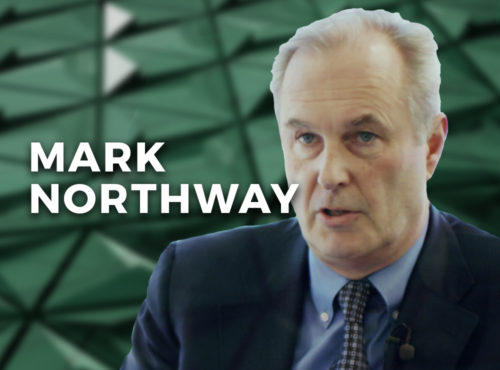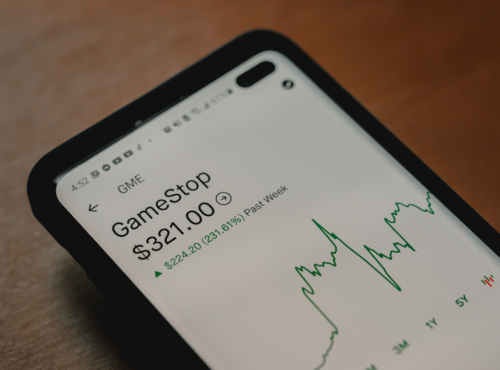
Arguably the most significant investment trend during the pandemic has been the rise of amateur trading, particularly among young people. Sometimes referred to as YOLO traders after their “You only live once” mantra, this new generation of speculators has been piling into the latest hot stocks with little experience of the equity markets and how they operate. According to a new study, one of the most commonly visited educational pages on the website of the US trading platform Robinhood is one entitled “What is the stock market?”
But what does this retail trading craze mean for market efficiency? MARLENA LEE, Global Head of Investment Solutions at Dimensional Fund Advisors considers the ramifications.
You only live once! Social media investors have banded together on unconventional platforms to drive up the prices of a handful of “meme stocks”, seemingly without traditional evaluation of investing risks and rewards. They made headlines with their “short squeeze” of GameStop and, as they garner media attention, their tactics continue. While it’s not the intended victim of the YOLO traders, will the efficient market hypothesis be a casualty of these events?
The answer depends a lot on your definition of efficient markets. Perhaps long-term investors would be better served questioning the potential impact on their investment philosophy.
Room for interpretation
Fama (1970) defines the efficient market hypothesis (EMH) to be the simple statement that prices reflect all available information. The rub is that it doesn’t say how investors should use this information. EMH is silent on the “correct” ways investors should use information and prices should be set. To be testable, EMH needs a companion model: a hypothesis for how markets and investors should behave.
This leaves a lot of room for interpretation. Should asset prices be set by rational investors whose only concerns are systematic risk1 and expected returns? It seems implausible to link recent meme-stock price movements to economic risks. Rather, they seem fuelled by investor demand to be part of a social movement, hopes to strike it rich with a lucky stock pick, or plain old schadenfreude.
Vast ecosystem
There is a vast ecosystem of investors, from individuals investing in their own accounts to governments and corporations who invest on behalf of thousands. Ask investors why they invest the way they do, and you’ll likely get a range of goals and approaches just as diverse. It’s this complex system that generates the demand for stocks. Another complex system fuels the supply of stocks. Supply and demand meet at the market price. People may contend that the market is not always efficient, or rational, but the stock market is always in equilibrium. Every trade has two sides, with a seller for every buyer and a profit for every loss.
There are plenty of well-studied examples that show supply and demand at work. The huge increase in demand for stocks added to a well-tracked index often creates a run-up in the stock price. Some of this price increase can be temporary and reversed once the tremendous liquidity demands at index reconstitution2 are met. Index reconstitution is just one example; instances of liquidity-driven price movements happen all the time.
It is well documented that liquidity demands can produce temporary price movements.3 Investors may wonder if temporary price dislocations motivated by YOLO traders differ from those caused by changes to an index. Lots of buying puts temporary upward pressure on prices, which later fall back to “fundamental value”. The more relevant observation may be that markets are complex systems well adapted to facilitate the supply and demand of numerous market participants.
It’s just a model
There are numerous reasons people may be willing to hold different stocks at different expected returns. Can all those differences be explained by risks? Doubtful. To quote Professor Fama, “The point is not that markets are efficient. They’re not. It’s just a model.”4 EMH can be a very useful model to inform how investors should behave. We believe investing as if markets are efficient is a good philosophy for building long-term wealth. Trying to outguess markets might be a quick way to destroy wealth.
It’s true, you only live once. The good news is that investors can look to market prices, not internet fads, to pursue higher expected returns. Theoretical and empirical research indicate higher expected returns come from lower relative prices and higher future cash flows to investors. Long-run investors can be better served by using markets, rather than chatrooms, for information on expected returns.
FOOTNOTES
1Systematic risk is the possibility of an investor experiencing losses due to factors that affect the overall performance of the financial markets in which he or she is involved.
2Reconstitution involves the re-evaluation of a market index. The process involves sorting, adding, and removing stocks to ensure that the index reflects up-to-date market capitalisation and style.
3For example, see Tesla’s Charge Reveals Weak Points of Indexing (Dimensional, 2021)
4Are markets efficient? – Interview between Eugene Fama and Richard Thaler (June 30, 2016)
DISCLOSURES
The information in this document is provided in good faith without any warranty and is intended for the recipient’s background information only. It does not constitute investment advice, recommendation, or an offer of any services or products for sale and is not intended to provide a sufficient basis on which to make an investment decision. It is the responsibility of any persons wishing to make a purchase to inform themselves of and observe all applicable laws and regulations. Unauthorised copying, reproducing, duplicating, or transmitting of this document are strictly prohibited. Dimensional accepts no responsibility for loss arising from the use of the information contained herein.
ALSO FROM DIMENSIONAL
Interested in more insights from Dimensional? Here are some other recent articles from this series:
Should a top-heavy stock market worry us?
Why the disconnect between the economy and markets?
The widening valuation spread between growth and value
What will the recession mean for small-cap stocks?
How worried should investors be about the recession?
Remember, you’ve trained for this
PREVIOUSLY ON TEBI
Don’t let the stock market distract you
Market efficiency and the case of Pete Rose
What’s the long-run return on equities?
How will the other Bond movie end?
Can machines identify winning fund managers in advance?
Link’s role in Woodford fiasco laid bare in new book
NEED AN ADVISER?
If you need a financial adviser, we may be able to help.
Wherever you are in the world, we will try to put you in contact with an adviser in your area whom we know personally, who shares our evidence-based investment philosophy and who we feel is best able to help you. If we don’t know of anyone suitable we will tell you.
We’re charging advisers a small fee for each successful referral, which will help to fund future content.
Click here and let’s get started.
© The Evidence-Based Investor MMXXI










